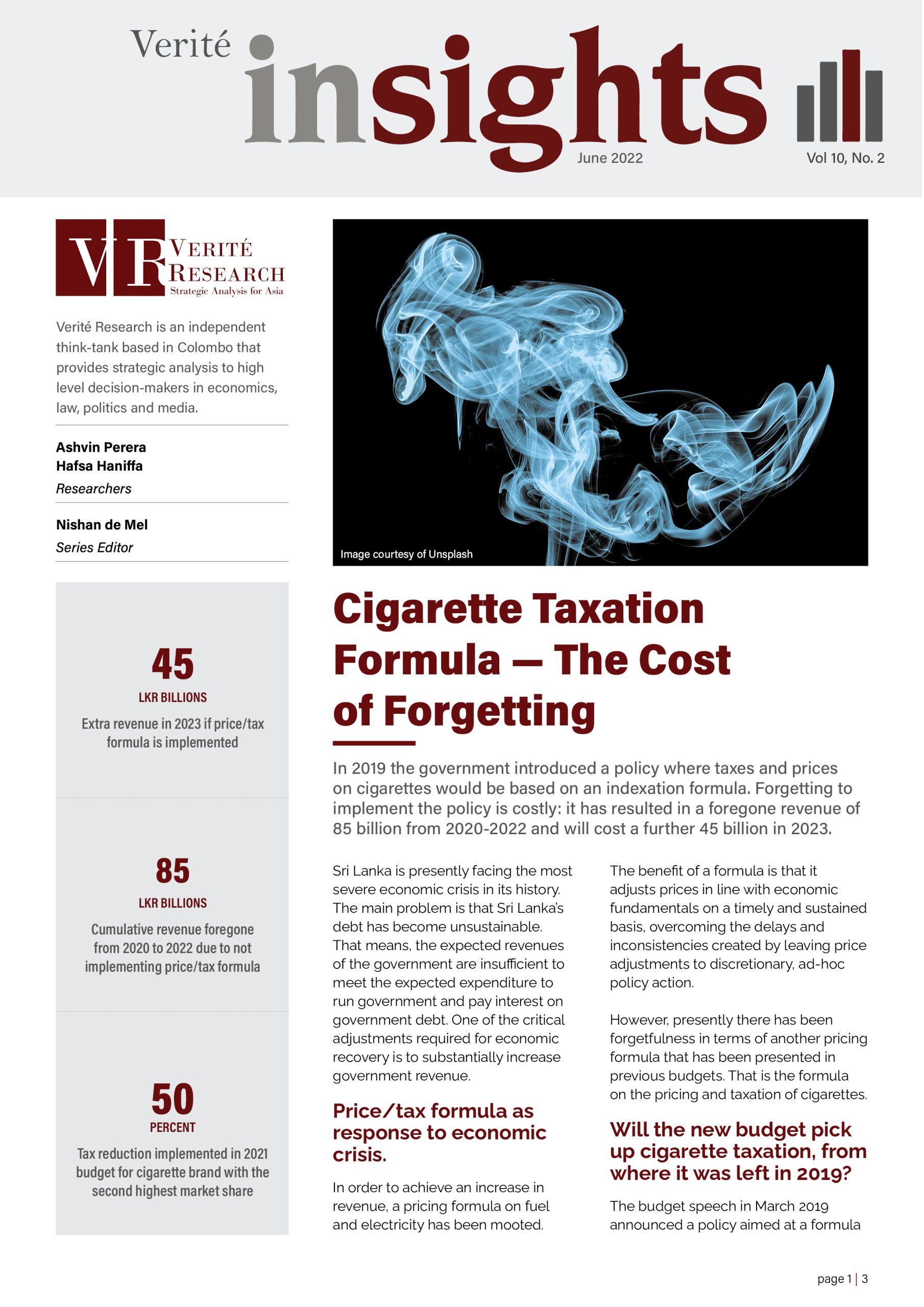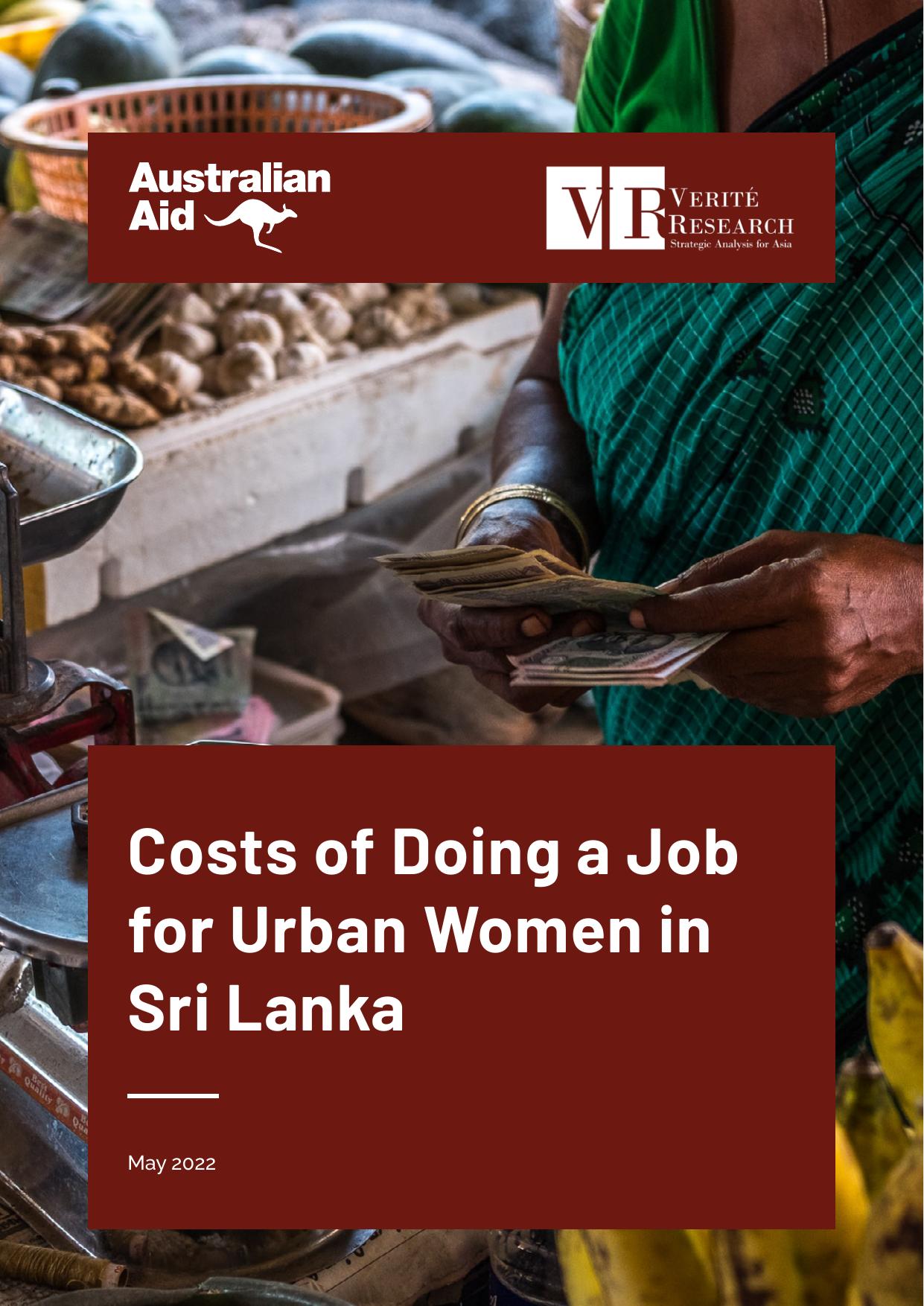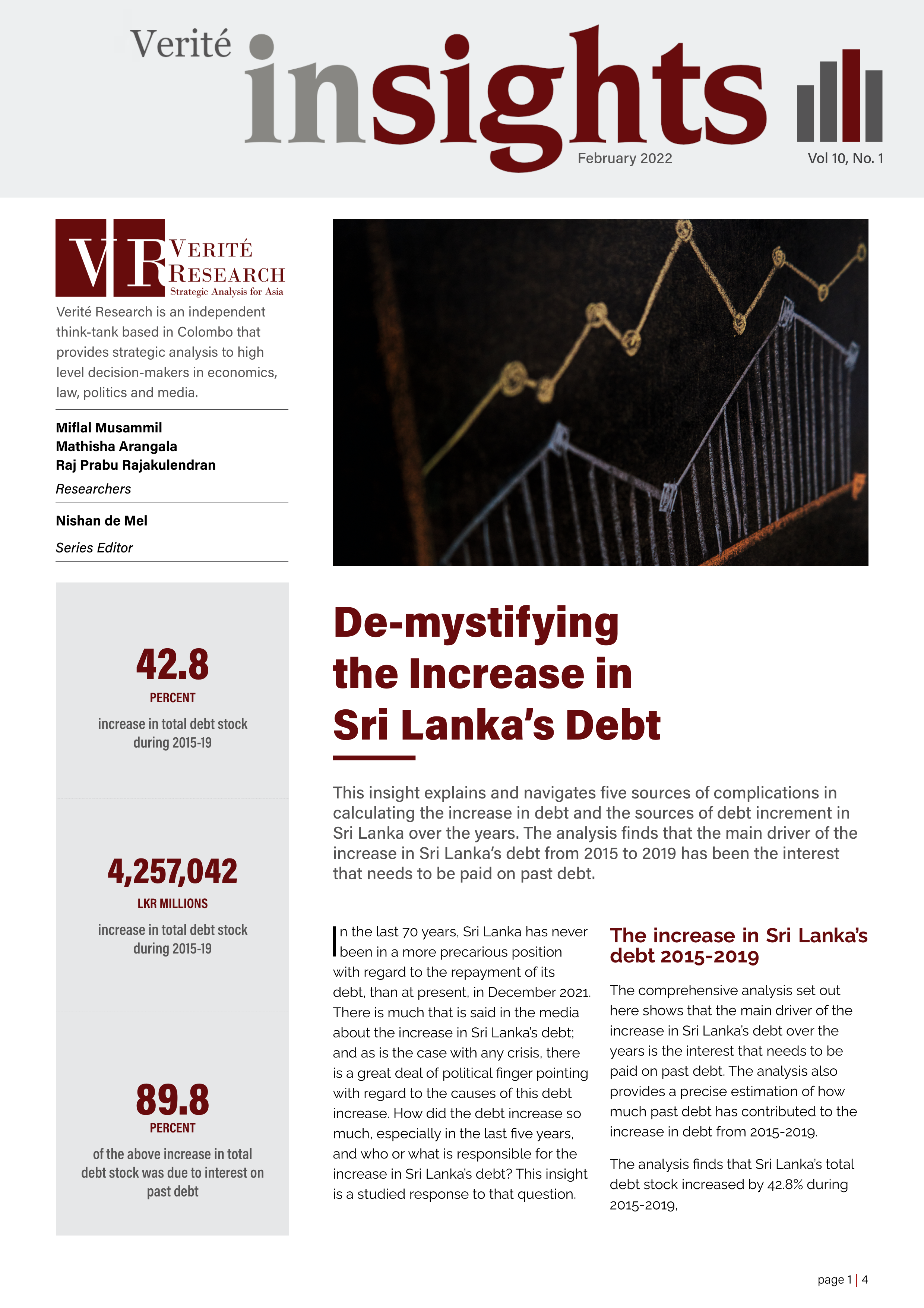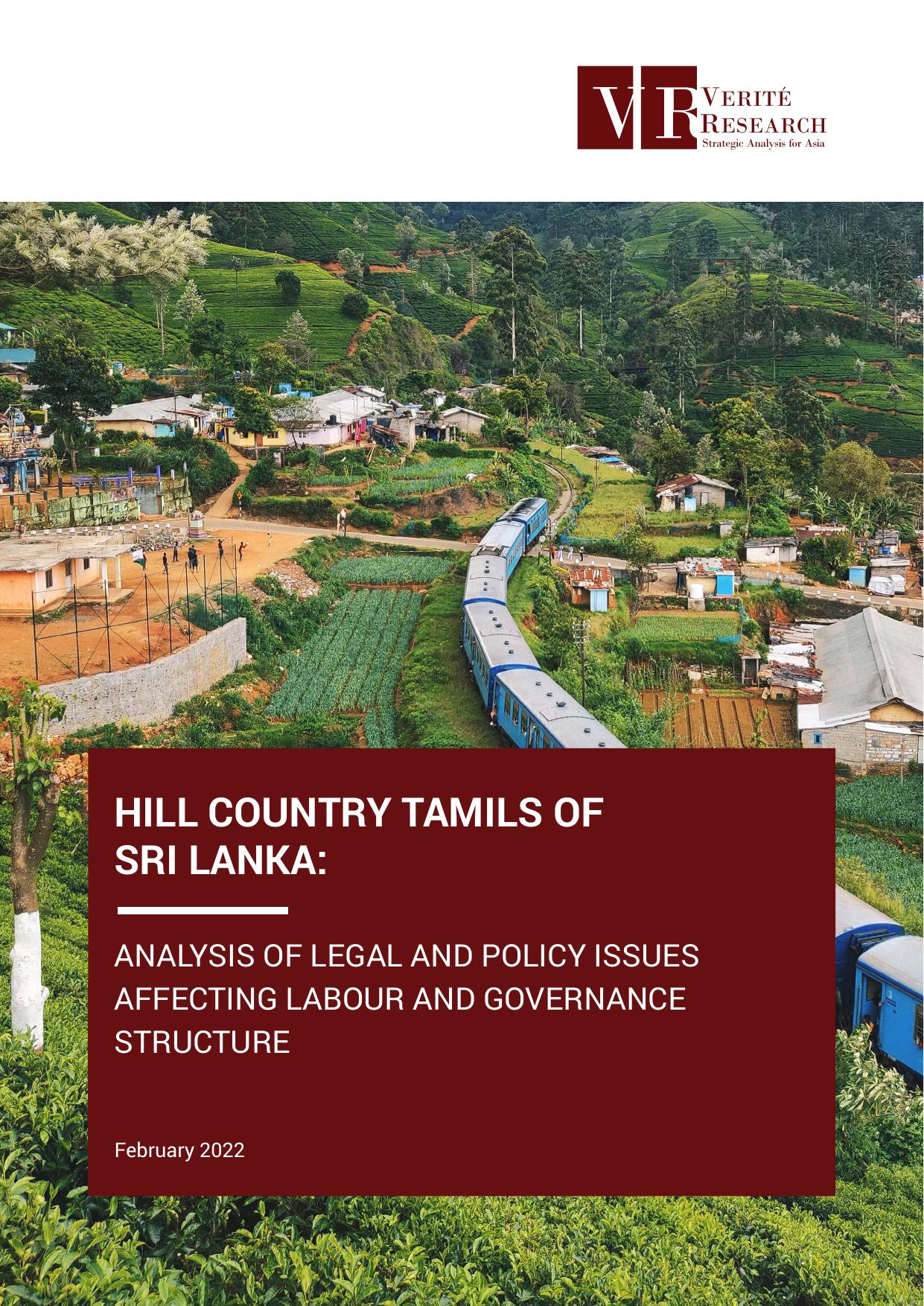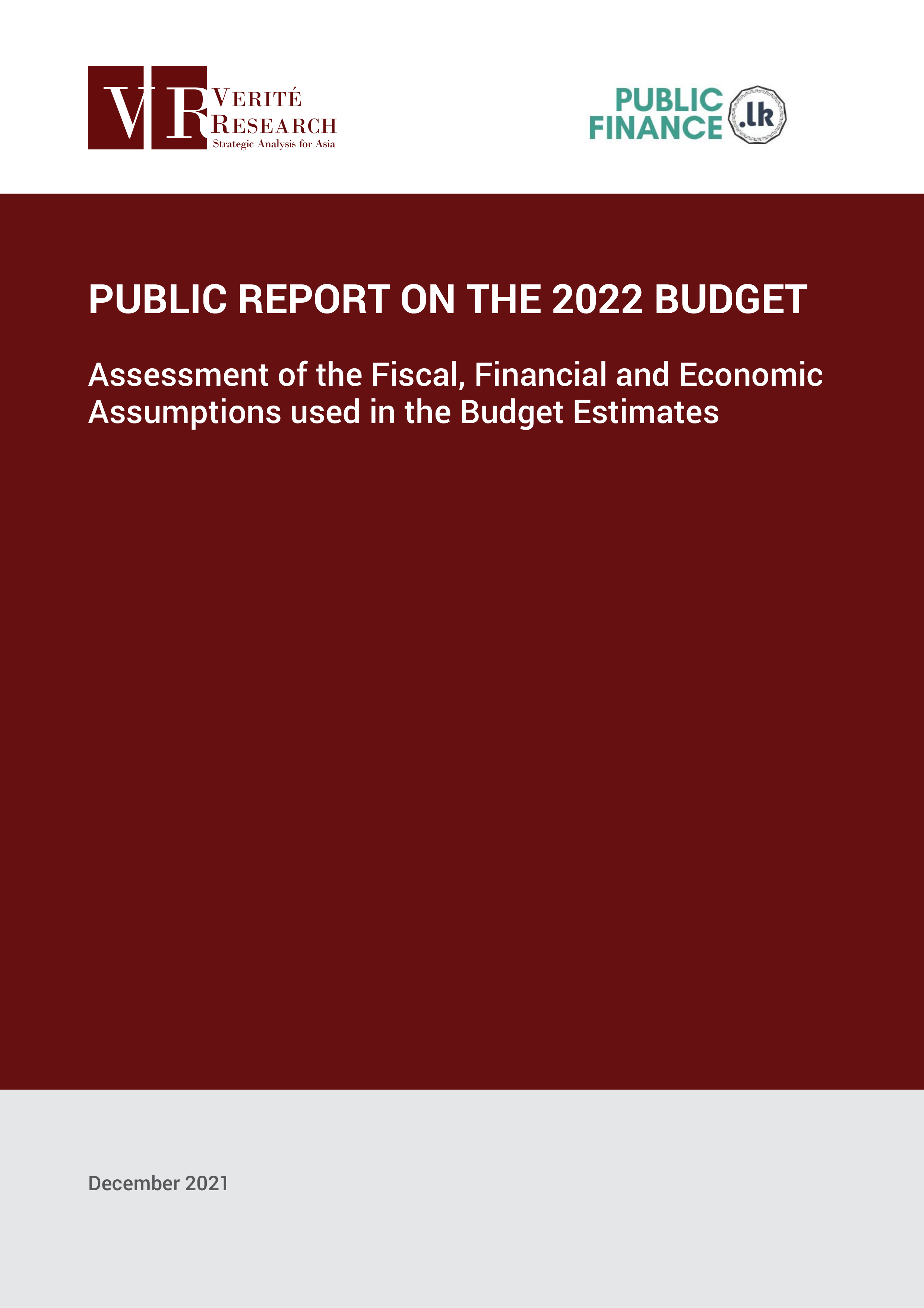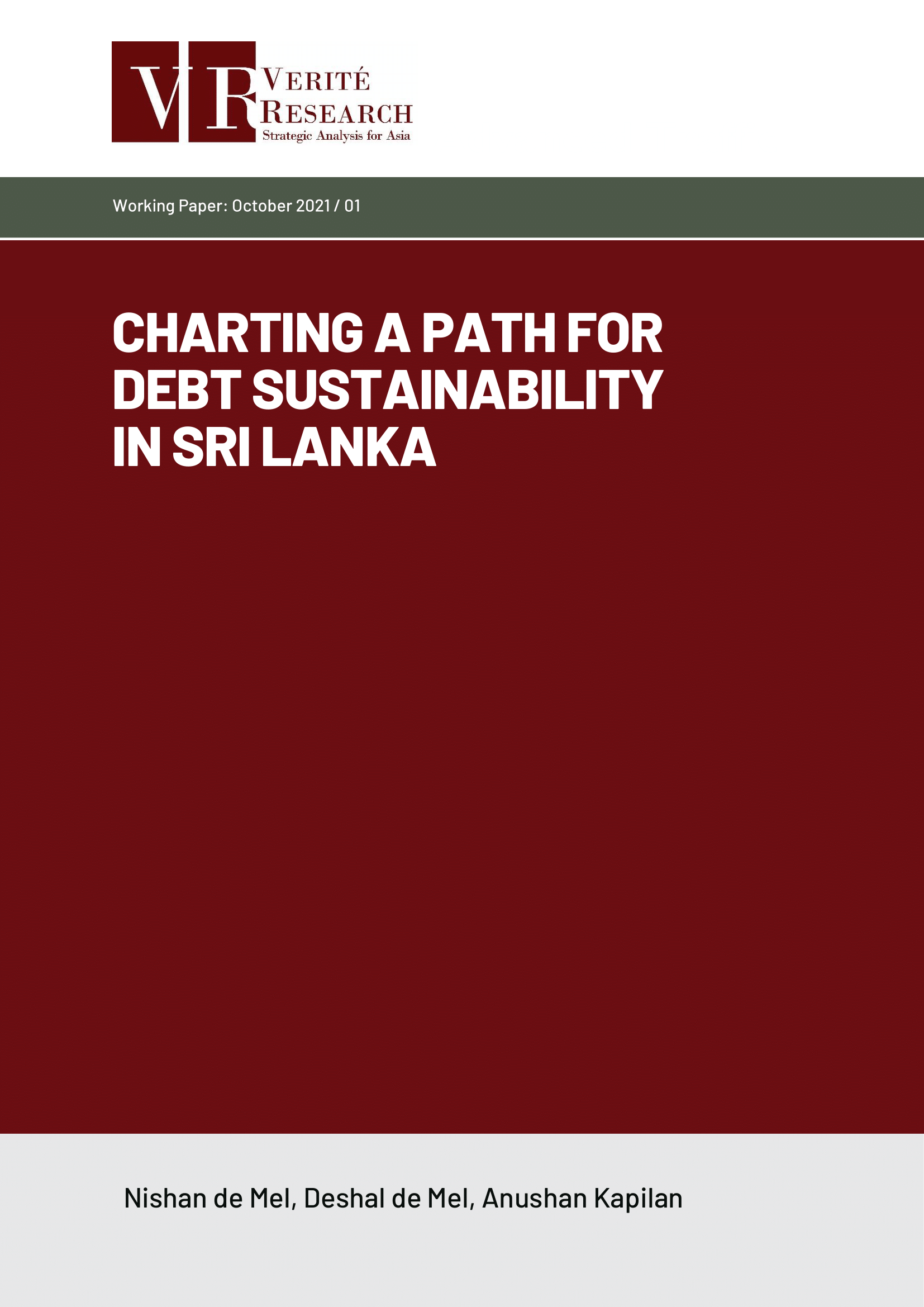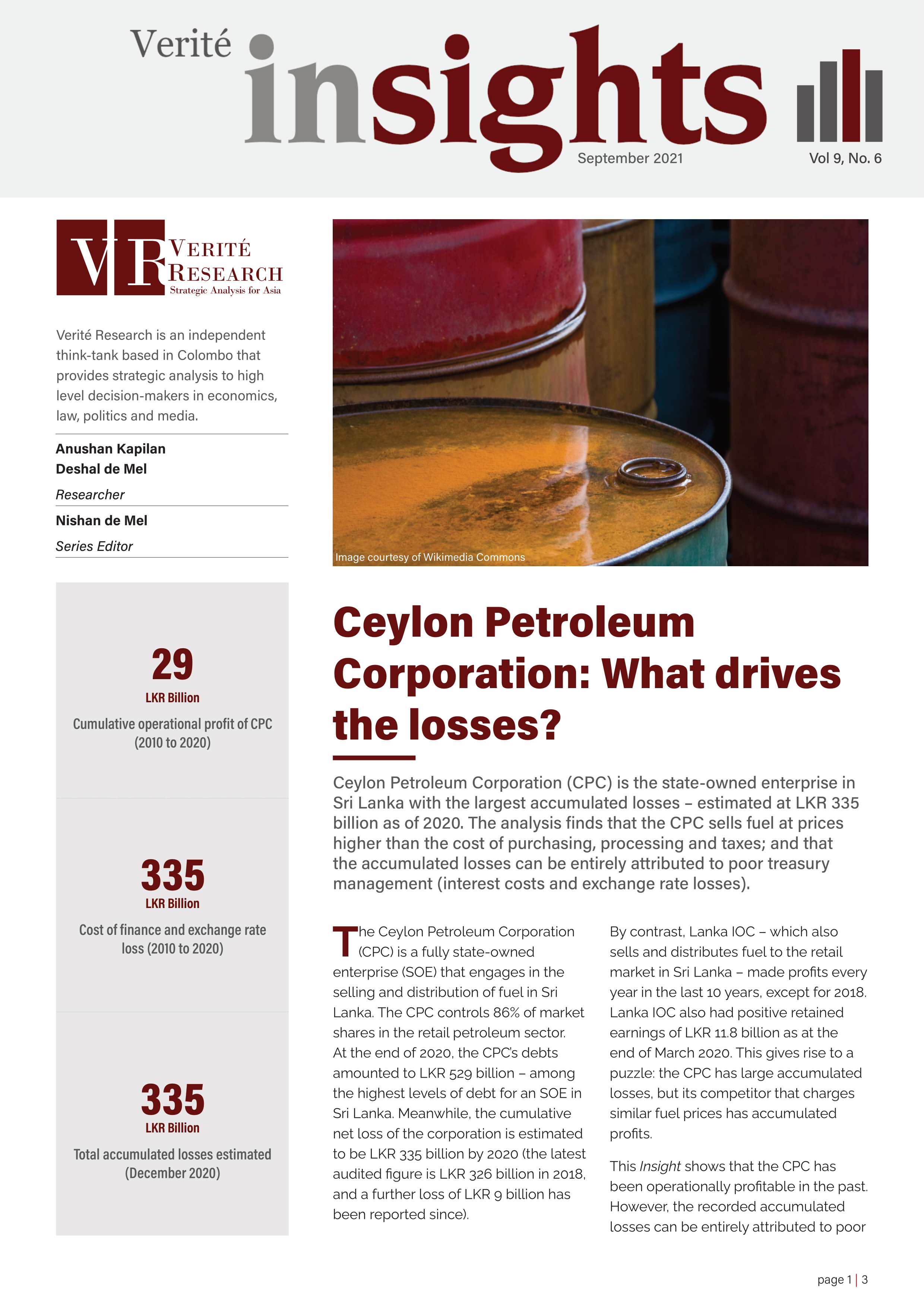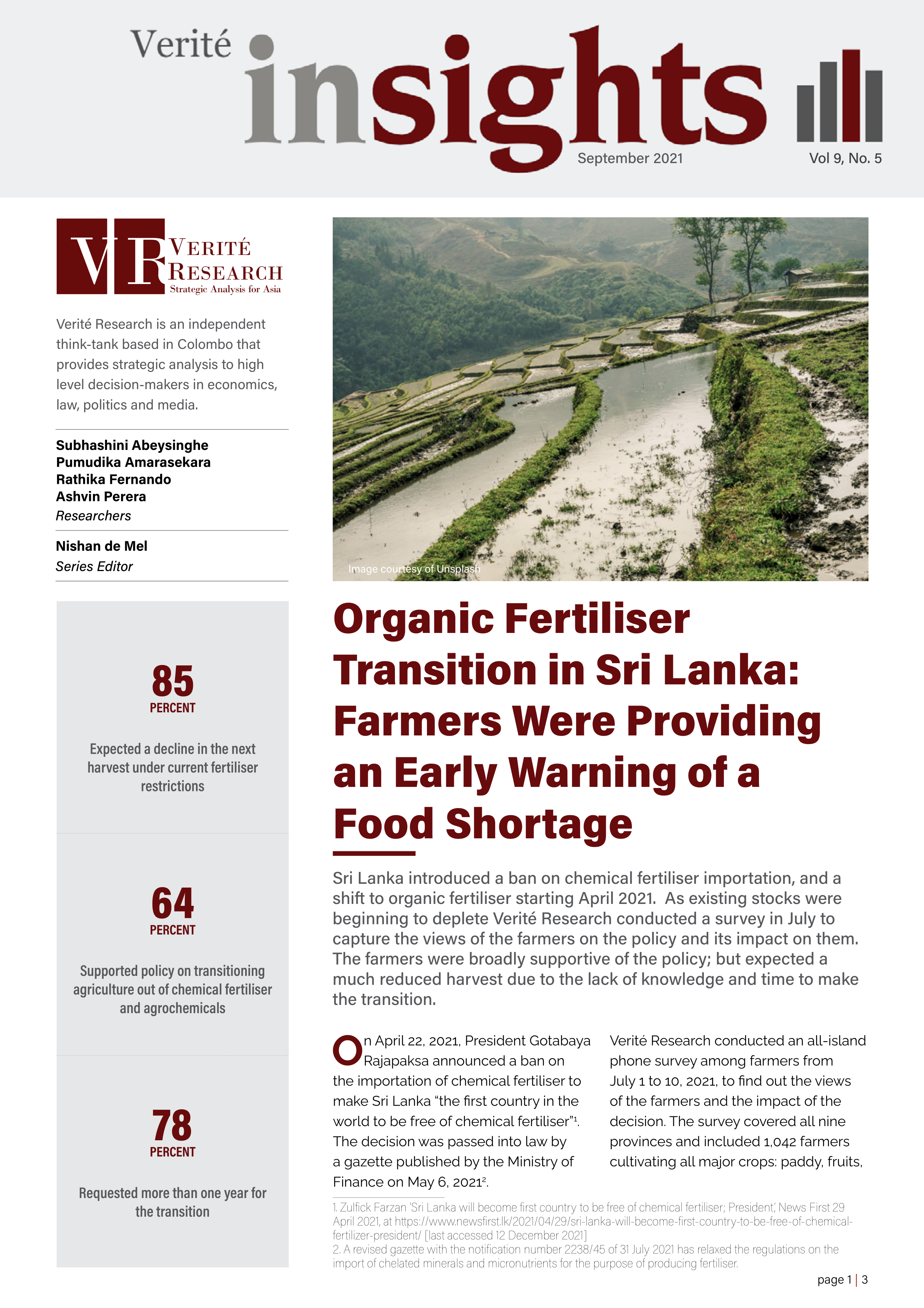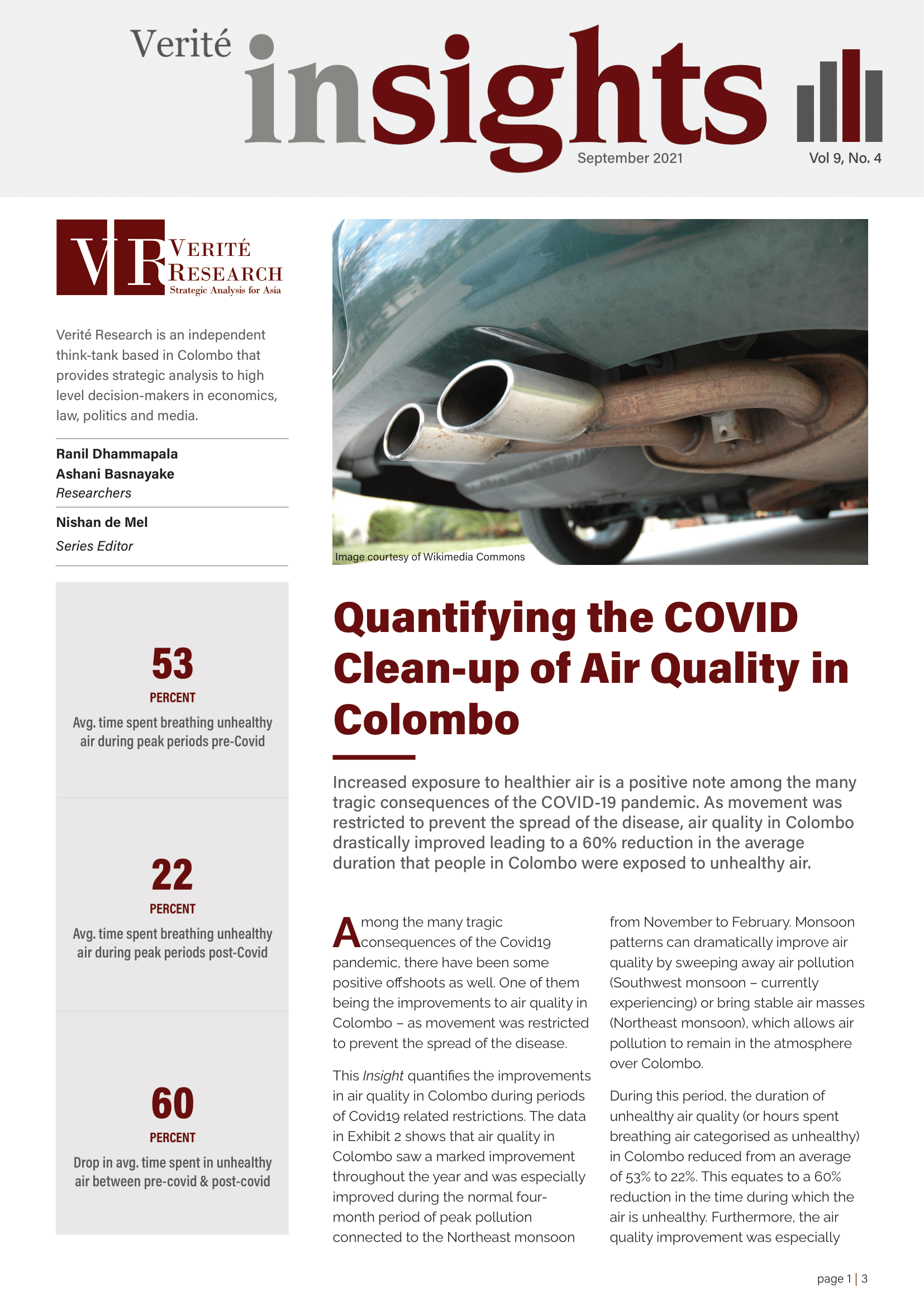In 2019 the government introduced a policy where taxes and prices on cigarettes would be based on an indexation formula. Forgetting to implement the policy is costly: it has resulted in a foregone revenue of 85 billion from 2020-2022 and will cost a further 45 billion in 2023.
This study aims to address the knowledge gap on how ‘cost’ factors can affect the choice architecture for women entering or exiting the labour force by estimating the monetary and non-monetary costs of doing a job for urban women in Sri Lanka. Working-age women in the Western province that were categorized as either currently employed, previously employed, or never employed, were sampled through focus group discussions and a detailed survey questionnaire.
This insight explains and navigates five sources of complications in calculating the increase in debt and the sources of debt increment in Sri Lanka over the years.
This report examines the socio-economic background and history of the Hill Country Tamil community (HCT) with a focus on health, education, labour and their primary engagement in the tea plantation industry. Thereafter, the report dives into the three main drivers of disadvantage that have paved the way to perpetuating the long-standing issues of discrimination and marginalisation in access to state services and major human rights guarantees faced by the HCT communities in this sector.
This report provides an assessment and analysis of the fiscal, financial and economic assumptions and estimates applied in the formulation of the 2022 Budget.
Since December 2018 Sri Lanka has been subject to three notches down in rating by S&P, Moody’s and Fitch Ratings. This situation is a historical first for Sri Lanka. While many of Sri Lanka’s key macroeconomic indicators have, in the past recorded more negative levels, Sri Lanka has never in the past, been evaluated as being at such a serious level of risk, in terms of defaulting on its debt.
Ceylon Petroleum Corporation (CPC) is the state-owned enterprise in Sri Lanka with the largest accumulated losses – estimated at LKR 335 billion as of 2020.
ශ්රී ලංකාව 2021 අප්රේල් මස සිට රසායනික පොහොර ආනයනය තහනම් කරමින්, කාබනික පොහොර වෙත මාරු වීමට පියවර ගන්නා ලදී. පවතින රසායනික පොහොර තොග අඩු වෙමින් පවතින වාතාවරණයක් තුල පොහොර ප්රතිපත්තිය පිළිබඳව ගොවීන්ගේ අදහස් සහ එහි බලපෑම අවබෝධකර ගැනීම සඳහා වෙරිටේ පර්යේෂණ ආයතනය ජූලි මාසයේදී සමීක්ෂණයක් පවත්වන ලදී. ගොවීන් මෙම ප්රතිපත්තියට පුළුල් ලෙස සහයෝගය දැක්වූ නමුත් ගොවීන්ගේ අදහස වුයේ මෙම පරිවර්තනය සාර්ථකව කිරීමට අවශ්ය දැනුම හා කාලය නොමැතිකම නිසා බොහෝ අඩු අස්වැන්නක් ලැබෙනු ඇති බවයි.
Sri Lanka introduced a ban on chemical fertiliser importation, and a shift to organic fertiliser starting April 2021. As existing stocks were beginning to deplete Verité Research conducted a survey in July to capture the views of the farmers on the policy and its impact on them. The farmers were broadly supportive of the policy; but expected a much reduced harvest due to the lack of knowledge and time to make the transition.
Increased exposure to healthier air is a positive note among the many tragic consequences of the COVID-19 pandemic. As movement was restricted to prevent the spread of the disease, air quality in Colombo drastically improved leading to a 60% reduction in the average duration that people in Colombo were exposed to unhealthy air.
